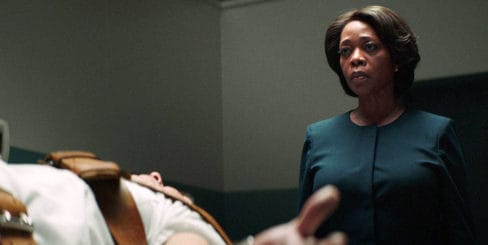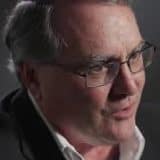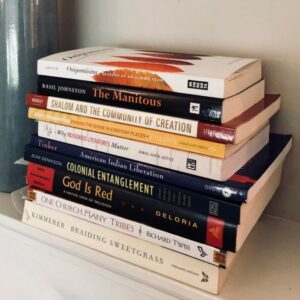
Editor’s Note: This review contains plot spoilers.
Earlier this month, filmmaker Chinonye Chukwu became the first Black woman to win the Sundance Film Festival’s Grand Jury Prize for her U.S. Dramatic entry, Clemency (2019). Clemency is a film of gut-wrenching intensity, as the audience is invited into the emotional turmoil of a Black female prison warden sanctioned to carry out the death penalty. For all those involved in the outrage of the American criminal justice system, this is a film that reminds us that even more is demanded of us than outrage. This film is a case study in deep justice: a social consciousness that demands more than public policy pronouncements and instead demands an empathetic connection to humanity.
This film is a case study in deep justice: a social consciousness that demands more than public policy pronouncements and instead demands an empathetic connection to humanity.
Clemency’s powerful acting performances are worthy of Oscar consideration. The film depicts the human cost of working within the prison system, with its grinding, numbing inhumanity. As a study from Washington State University reports, the rate of PTSD among prison employees equals that of Iraq and Afghanistan war veterans. Notably, the rates of PTSD among prison employees is consistent across both minimum and maximum security facilities.
The focus throughout Clemency is on Bernadine Williams, the warden (played by Alfre Woodward). Williams is responsible for overseeing the death penalty in her prison. Although many films portray wardens as callous, racist monsters, Williams is a sympathetic protagonist. She is calm, professional, caring, involved, and knows her prisoners by name.
One might think that it is unusual to have a woman working as a prison warden, but with the expansion of the U.S. prison population, it has become far more common. Currently, one-third of the wardens in California’s 33 prisons are women. And for the past 20 years, Jeanne Woodford has worked as the warden for San Quentin, the prison with the greatest number of death row inmates. There is even a national association of female wardens: the Association of Women Executives in Corrections.
Two of the things that make Clemency so powerful are the accuracy by which prison life is depicted and the ritualistic professionalism by which the death penalty is conducted. The film graphically depicts two such deaths, and its clinical candor may very well be triggering for some viewers. The filming itself was so intense that psychological counselors were made available on set, and several extras couldn’t make it through.
At one level, we’ve been told the story that the current prison system makes everyone a victim. This was the message of the 2007 documentary Prison Town, USA, which aired on PBS. It depicted the social consequences to Susanville, California, in which half of the town’s population works in one of the three nearby prisons housing a total of 6,000 inmates.
But Clemency gets even more visceral—and personal—in its depiction of the cost of the death penalty on those who are charged with carrying it out. Chukwu is able to tell this story honestly, without trying to make cheap political points. She certainly sheds light on our criminal incarceration system, its systemic racism, and the ethics of the death penalty, but her main point is deeper still. She knows of what she speaks as she has immersed herself in this world, dedicated many years working to free those wrongly incarcerated on death row.
Chukwu’s initial interest in the topic was spawned by the controversial 2011 execution of Troy Davis for the murder of police officer Mark MacPhail in Savannah, Georgia. Among those calling for clemency for Davis were six retired prison wardens, including Jeanne Woodford of San Quentin. “Their urging of the governor was not just on the grounds of possible innocence,” Chukwu says, “but it was also speaking to the emotional and psychological consequences that they knew killing Troy would have on the corrections staff sanctioned to do so.” This is the first film to tell such a story through the eyes of those who carry out the death sentence.
I saw this film twice in two days at the Sundance Film Festival. At first, I did not want to see it a second time, but am now glad I did. My first viewing was caught up in outrage over the inhumanity of the system, the complicity of the warden, and the anticipation of whether clemency would be granted in time. All of this is there, to be sure, but it is largely besides the point of the film. This film calls its viewers to deep justice. This is the point where empathy connects with transcendence. If deep ecology includes environmental spiritualism, so too does deep justice.
This film calls its viewers to deep justice. This is the point where empathy connects with transcendence.
In the final execution scene in the film, the death row prisoner Anthony Woods (played by Aldis Hodge) is asked if he has any last remarks to make. He declares his innocence and empathizes with the loss of the family of Mark MacPhail—for whose alleged murder he is being killed. The script uses the exact words spoken by Troy Davis before his execution in 2011. Clemency is not granted, and Woods is executed. The film ends with the warden walking away into the night, overcome with grief. The pain is palpable. Questions abound. There are no easy answers. Brokenness is in your face and the audience fights to catch its breath.
In a question-and-answer period following the second screening, a Catholic priest asked Chukwu, “Where is there hope in your film?” In the moment of that question, I realized that the hope to be found is not in the film itself, but in the empathy it engenders in the audience for not only the condemned, but for the warden.
This is not a film about public policy, but about human connection. Deep justice starts from a place of empathy toward the other—even toward a prison warden we may be inclined to demonize. Justice demands more. Justice demands seeing the other, even the antagonist-other, through the eyes of infinite compassion. Hope is found in our connecting with the humanity of the other. Chukwu reminds us that this is the starting place of all meaningful social justice.
 John Seel is a consultant, writer, cultural analyst, and cultural renewal entrepreneur. He is the former director of cultural engagement at the John Templeton Foundation, and author of The New Copernicans: Understanding the Millennial Contribution to the Church. He has an M.Div. from Covenant Theological Seminary and a Ph.D. in American Studies from the University of Maryland (College Park). He and his wife, Kathryn, live in Lafayette Hill, PA.
John Seel is a consultant, writer, cultural analyst, and cultural renewal entrepreneur. He is the former director of cultural engagement at the John Templeton Foundation, and author of The New Copernicans: Understanding the Millennial Contribution to the Church. He has an M.Div. from Covenant Theological Seminary and a Ph.D. in American Studies from the University of Maryland (College Park). He and his wife, Kathryn, live in Lafayette Hill, PA.


